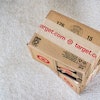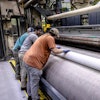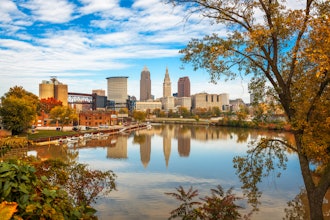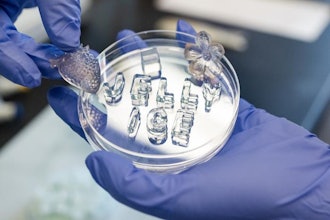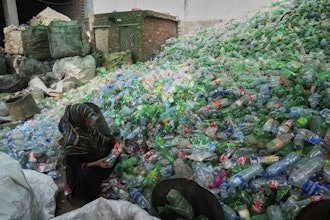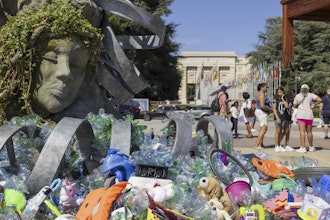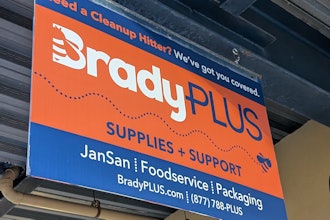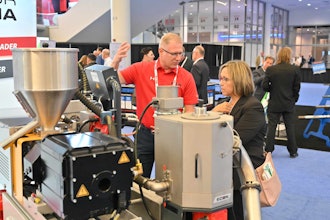| In this Feb. 14, 2013 file photo, a girl holds a beverage, served in a foam cup, and a donut at a Dunkin' Donuts in New York. The New York City Council's sanitation committee has a hearing set for Monday, Nov. 25, 2013, on proposals to ban plastic-foam food containers or explore recycling them. (AP Photo/Mark Lennihan, File) |
NEW YORK (AP) — A potential ban on plastic foam food containers in a city that thrives on takeout proved a piping-hot topic among lawmakers Monday, as they debated the material's pros, cons and prospects for recycling.
An environmental bane to some, a food-service staple to others, the familiar foam to-go cups, plates and cartons already are prohibited in San Francisco and dozens of other U.S. cities and could be on their way out in New York.
The City Council is weighing competing proposals, including a measure that would outlaw the containers after a year's inquiry to see whether the tons of containers could be effectively recycled instead — a possibility ban backers and opponents vehemently dispute. The city's plastics recycler says it's not workable right now.
"This is actually a rush into the future — for the protection of the Earth, for our environment, for people who work in this industry," Lewis Fidler told fellow members of the City Council's sanitation committee during an often pointed hearing that spanned more than six hours.
But Councilwoman Diana Reyna said the measure would "unduly burden small businesses by increasing inventory costs," and customers ultimately could pay the price.
There's no date yet for a council vote, but the hearing marked an effort to move the issue forward before the year ends. Environmentally minded Mayor Michael Bloomberg, who proposed banning the containers in February and backs the council proposal, leaves office at the end of the year. Mayor-elect Bill de Blasio said Monday he also supports it.
Street vendors and some eateries prize lightweight, heat-keeping containers made from expanded polystyrene foam. While people often call it Styrofoam, that brand isn't used in food packaging, manufacturer Dow Chemical Co. says.
But the containers take a long time to break down in landfills, and stray pieces of foam complicate the city's efforts to recycle food waste, Deputy Mayor Caswell Holloway said Monday. About 23,000 tons of plastic foam are thrown out per year in New York, where the city annually spends about $310 million burying more than 3 million tons of trash, he said.
City plastics recycling contractor Sims Municipal Recycling can't currently process and market plastic foam, according to general manager Thomas Outerbridge. But Michigan-based manufacturer Dart Container Corp. has been floating a plan to buy the material from Sims and ship it to Indiana to be washed and recycled into a form that can be used to make photo frames.
"If it can be recycled, sure, let's recycle it," but city officials believe that's unlikely, Holloway said, calling a ban "the most cost-effective and rational way to deal with this."
Holloway said officials found replacements would average only 2 cents more per cup or carton.
But the change would make a big difference to Louis Maldonado, who owns two restaurants called Tacos Morelos in Queens.
He spends about $1,600 every two weeks to order a total of 2,500 foam cups and plates. He said his inquiries found plastic replacements would cost more than twice as much.
"It's going to hurt my business really badly," likely requiring cutting workers' hours or laying one off, he said.
Many New York restaurateurs already eschew the foam. Holloway said the city's biggest plastic-foam cup users, McDonald's and Dunkin' Donuts, have told officials they're working toward an alternative.
Dunkin' Brands spokeswoman Michelle King said in a statement that the company hoped to have a replacement within three years. McDonald's representatives didn't immediately respond to an inquiry about the matter.
Bloomberg's 12-year tenure has featured environmental initiatives ranging from planting 1 million trees to expanding recycling this spring to include all rigid plastics.
___
Associated Press Food Industry Writer Candice Choi contributed to this report.

